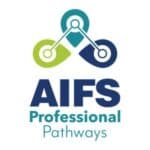Understanding J-1 Visa Limits in the Health and Medical Fields

J-1 Intern and Trainee programs are excellent opportunities to gain experience in a wide range of U.S. industries, including the health and medical fields. The U.S. is renowned for its leading health and medical innovation and expertise, making it an ideal setting for learning about best practices, technology, and interdisciplinary collaboration across a variety of roles. While the J-1 visa can support certain roles in the health and medical fields, there are critical limitations you should be aware of.
Prohibited: Patient Contact
Federal regulation explicitly prohibits J-1 visa holders from engaging in any form of patient (person or animal) contact or care. Therefore, activities for J-1 Interns and Trainees may not include:
- Conducting or assisting in any procedures on patients
- Caring for patients (monitoring, cleaning, feeding)
- Determining a medical course of action for patients
- Prescribing or administering medications
- Assisting in leading individual or group therapy (mental or physical)
- Cadaver use
Permitted: Non-Clinical Activities and Roles
Due to the prohibition of patient care and contact, a J-1 Intern or Trainee’s responsibilities must be non-clinical, focusing on operational, lab, and research tasks. Acceptable activities for J-1 holders may include, but are not limited to:
- Testing pre-collected specimens or using medical devices in a lab setting
- Supporting research through testing and data analysis
- Facility/clinic management and operations
- Removed care observation (e.g., in a gallery or via audio and video feed)
- Evaluating medical data
- Participating in meetings between medical professionals, vendors, and other non-patients
- Drug or device engineering and design
- Medical device sales
- Health policy development and literary research
Some applicable roles may include public health assistants, lab technicians, health IT professionals, healthcare administrators, and many more. You may be surprised what roles are eligible for J-1 Intern and Trainee programs—including a range of experience levels from entry-level interns to upper-level professionals.
Detailed Training Plan Required (Form DS-7002)
The host company must submit comprehensive position details that clearly outline goals, skills to be learned, daily tasks, and more. This aids in the creation of the federal Training/Internship Placement Plan (Form DS-7002). Within this training plan, non-clinical duties should be clearly defined—any responsibilities that require contact with patients will deem the plan non-compliant.
AIFS Professional Pathways—Your J-1 Intern and Trainee Program Partner
Navigating the J-1 visa process can be challenging, especially for Interns and Trainees in the medical field. Fortunately, AIFS Professional Pathways is here to guide you throughout your J-1 journey, offering valuable support and expert visa services—we’ll even help you determine if your career field is eligible. We offer 24/7 emergency support, comprehensive insurance, and unmatched customer service to ensure you feel happy and supported throughout your program. With AIFS Professional Pathways, J-1 participants can focus on gaining valuable experience in the health and medical industries in the U.S., knowing they have the guidance and support they need every step of the way.
AIFS Professional Pathways
AIFS Professional Pathways administers J-1 visa sponsorship for international Interns and Trainees pursing professional opportunities with multi-sector businesses across the U.S. This division of AIFS supports U.S. companies, immigration firms, universities, partners, students, and professional at all levels.
